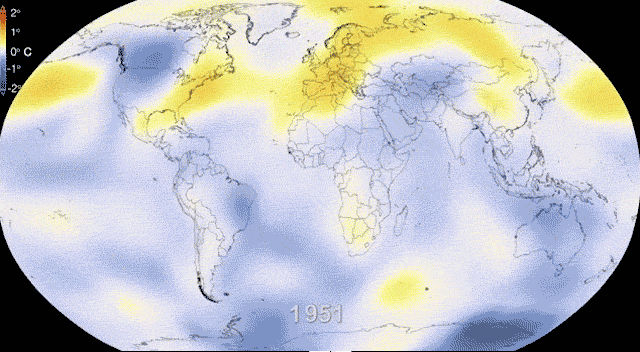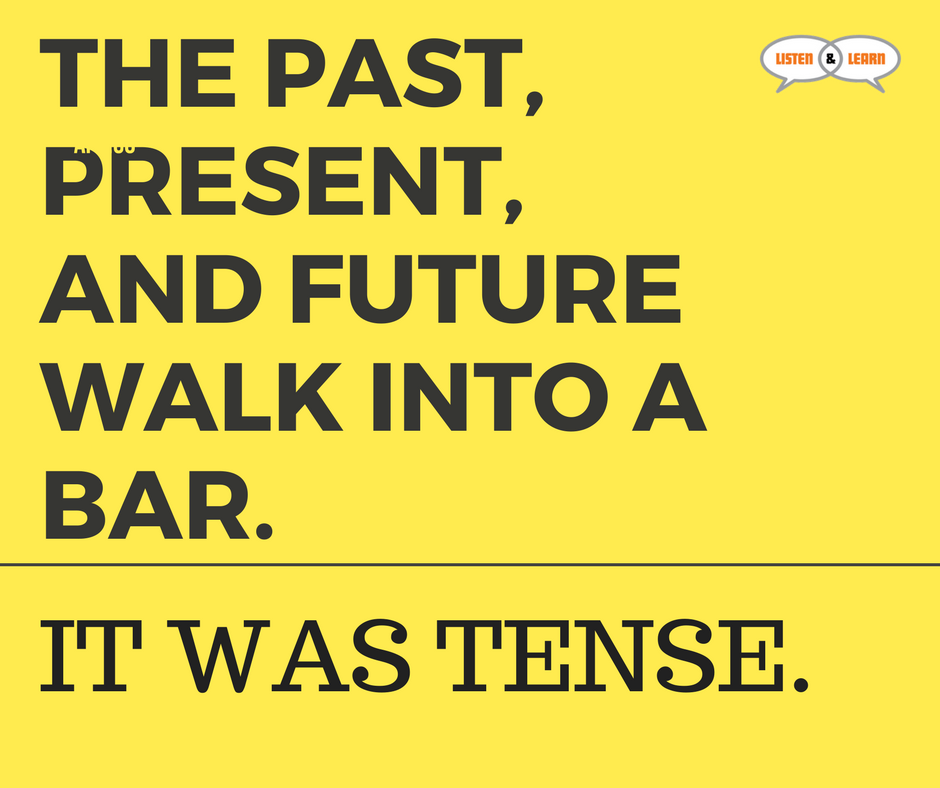Can the Words We Use Stop Climate Change?
Climate change terminology used to be subject-specific vocabulary for those working in the fields of environmental science, but through both our scandal sheets and serious news has seeped into everyday conversation. Our world is changing, bearing scars as evidence of events that most scientists would argue we have brought on ourselves. The responsibility of creating a sustainable world is on our shoulders, and the language we use to do so is important, shaping the future of generations to come.
Can the language you grow up speaking determine how willing you are to take action against climate change? Does the country you come from shape your perception of what many scientists believe is one of the greatest threats to our way of life? With climate change here, could redefining our language actually save the day?
GIF via Giphy
A matter of tenses
It's strange, we know, attributing environmental awareness to the tense in which we speak, but studies suggest a distinct difference in thinking between speakers of languages that have true future tenses, and those that do not. Present-tense languages are those like Finnish and German, which don't really use a future tense to talk about what is happening in the future. Such languages talk about things as though they are going on 'today' — we go to the cinema tomorrow instead of we will go to the cinema tomorrow, for example.
Future-tense languages like English and French do need a specific way of talking to speak about the future. English uses the above example of future tense with will, as well as present continuous with time stamps, and going to, whereas French uses a variety of stems that are conjugated depending on who is doing the talking.
A difference of timing?
Research by Mavisakalyan et al., published in the Journal of Comparative Economics, have theorised that those who speak present-tense languages are more likely to be environmentally conscious than their counterparts who speak future-tense ones. Their research suggests a dramatic difference in interest of around 20% between these two language groups, and an even larger 24% difference between those willing to pay higher taxes in order to protect the environment, and those who are not. And this, in turn, shows a correlation with a nation's climate change policy; countries with present-tense languages generally have much stricter policies than those with future-tense languages.
Discounting the future
So how do these linguistical differences play into a different approach to outlooks on climate change? Well, those languages that can bring the future forward in a sense by talking about it as though it is happening now can change our level of care about what is going on. If we have the opportunity to have something today, rather than have it in, say, a hundred years time, it has more value to us because it is tangible, and it is something we can experience—and we can experience it now.
Using this line of thinking, bringing the reality of climate change into present-day thinking takes away the dismissive nature of it being a future generation's concern. So bearing additional costs or adapting to new behaviours to stave off climate change is an investment in the here and now that we can benefit from. Language that says there is climate change rather than there will be climate change is therefore far more impactful.

GIF via Giphy
The importance of words
So is the answer here to marry the best parts of linguistics with climate change decisions? Should we all just start speaking Finnish, a language whose present-tense puts its 'future' very much in the 'now', and whose environmental policies are amongst the strictest in the world?
Since learning an entirely new language for global negotiations on what to do about climate change might not be the most practical and fast-acting, perhaps it's more about a careful selection of the language we use to raise awareness in a language we already speak. Though having said that, scaremongering phrases like extreme weather events and carbon emissions reversal have done little to deter us from practices that are damaging to our environment, despite the very real impact these things pose on our daily lives.
Learning a new language? Check out our free placement test to see how your level measures up!
Policymakers are trying to guide our thinking on green issues; though not with emotive language bringing the future into the present, but instead with threats to our finances, giving penalties for homes and businesses not recycling, and issuing charges for car users going into our capital's Low Emission Zone, as UK examples. This language is clearly persuasive so we can keep money in our pockets instead of theirs, but does it truly make us care about the environment? Unfortunately and most probably not.
Climate change is an important subject that raises many questions, ones there are no easy answers to. But if the above study demonstrates links between linguistics and environmental responsibility, then perhaps our international climate change panels should be taking a linguistics course or two, to overhaul their persuasive language for policy making. If all else fails, then learning a more environmentally-language in which to converse might not be as drastic as it sounds!




